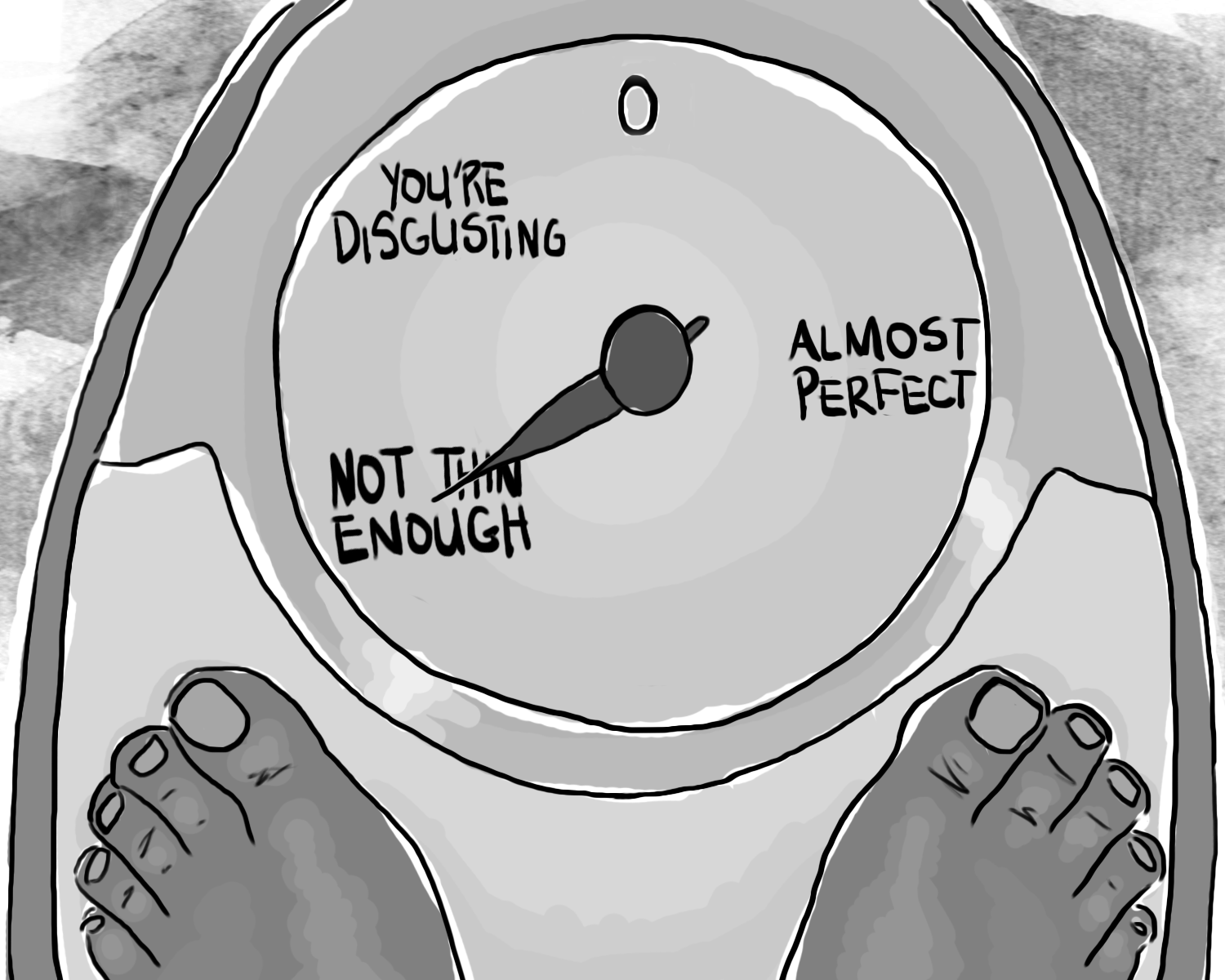I had an eating disorder for over three years, but my mind-set was disordered for much longer. It didn’t happen like the flick of a switch. It took years of subtle negativity, self-doubt and body comparisons, slowly creeping into my mental state like the darkening of the summer sky. What began as a harmless desire to lose some belly fat gradually shattered my self-esteem, weakened my closest friendships, and changed my perspective of food forever.
Whenever somebody mentions the term ‘eating disorder’, most vision a scarily thin girl standing in front of a mirror. We are bombarded with skeletal images, showing the terrible effects of eating disorders in a very visual, physical sense. But this automatic association of disordered eating with a tiny figure is extremely damaging, implying that serious cases of eating disorders require drastic weight loss, when in reality this is far from the case
As my eating decreased I lost a little weight- but not much. All the girls I saw on my Instagram feed had tiny waists and thigh gaps, and there I was with my chubby cheeks and wobbly stomach. I was mortified by my failure to become skinny, and punished myself over and over with a cycle of binging and restricting, binge drinking, and exercising; ultimately spiralling my weight fluctuation out of control.
I hid my eating problems for years, not understanding why I behaved in such erratic and frantic ways, wearing loose clothes to hide my body. In my eyes, to be bulimic was to be fat and bloated, instead of the small anorexic. It’s only now that I understand how this association was a societal one, and not just within my own head.
Your weight and body type alone never determine what mental or physical illness you may have. The size of your waist should never determine whether or not you each lunch today, if you should punish yourself with endless exercise, or if you have to avoid that chocolate cake you really want. It’s wrong that if you naturally have a small waist, people think it gives them the right to ask whether you have an eating disorder, assuming that they can pry into your business and assume you have a mental illness. It’s also wrong that a girl in size 12 clothes struggles with Orthorexia in secret, ashamed to tell anybody because she’s ‘not sick enough’.
I’m taking a risk writing this article. Mental illness is something I’m very open about, but pouring your most intimate stories onto a page, or into a newspaper, still makes me nervous. But I’m doing this to challenge myself- to never return to those horrible years of disordered eating- and to reassure anyone else out there that it is ok to share. If writing this helped just one person to seek help, I’d be over the moon.
Eating disorders are complex processes, and every person has different traumas and life experiences that trigger them to develop disordered behaviours. Eating disorders can develop regardless of your weight, grades at university and financial situation: mental illnesses can occur even if you feel you have no reason to be struggling. If you feel pressured by any aspect of University life, or you have a pre-existing mental illness, don’t be afraid to ask for help and never ever give up on recovery: regardless of your size.
Charlie Collett
(Photo credit: http://www.vantagehomemedical.com/common-warning-signs-of-possible-eating-disorders.htm)

